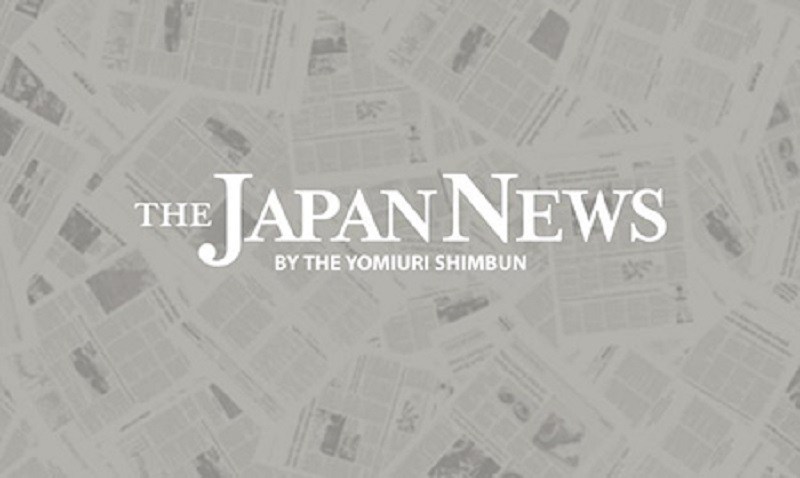
15:24 JST, January 29, 2021
The Japan-U.S. alliance is the cornerstone of Japan’s foreign policy. Tokyo should build a relationship of trust with the new U.S. administration through repeated communication.
Prime Minister Yoshihide Suga spoke with U.S. President Joe Biden by phone for about 30 minutes. Suga offered his congratulations to Biden on the president’s inauguration and expressed his willingness to visit the United States as soon as possible. “I will deepen my personal relationship with Mr. Biden and work to strengthen our alliance,” Suga said following the phone talks.
With just over a week having passed since Biden’s inauguration, it is hard to say that his administration’s foreign and security policies have been fully formulated. It is necessary for the leaders and ministers of the two countries to hold multilayered talks to establish a strategy for peace and stability in Asia.
During the phone conversation, Suga and Biden agreed to cooperate to realize the vision of a “free and open Indo-Pacific.”
While China has been accelerating its unilateral maritime advance, it is becoming more important for such principles as the rule of law and freedom of navigation to take root in the vast waters of the region. Japan, the United States, Australia and India are deepening their cooperation, and major European countries are also showing great interest in the issue.
Biden used to employ such expressions as “secure and prosperous” when describing his policy on the Indo-Pacific, but it is significant that the leaders of Japan and the United States shared the principle of “free and open.”
China and North Korea continue to advance their military buildups, making Japan’s security environment even more difficult. It is reassuring that during the phone talks, Biden expressed his commitment to providing “extended deterrence” to Japan through military force, including nuclear weapons.
The government should enhance the role of the Self-Defense Forces to steadily deepen the Japan-U.S. alliance.
Beijing has decided to allow the Chinese Coast Guard, a maritime safety agency, to use weapons. It is feared that the country’s military and coast guard will become more integrated in order to carry out more aggressive operations around the Senkaku Islands in Okinawa Prefecture.
Biden reiterated that the Senkakus are covered by the Japan-U.S. Security Treaty, which stipulates U.S. defense obligations to Japan, a remark that could keep China in check.
Suga and Biden also affirmed that they will work together for the denuclearization of North Korea, a task that requires cooperation among Japan, the United States and South Korea. The government must also tenaciously continue to call for U.S. cooperation to resolve the issue of Japanese nationals abducted by North Korea.
Biden has expressed a policy of advocating multilateralism. In the telephone talks, the president called for Suga to take part in a summit on climate change he will host in April. The prime minister expressed his willingness to attend the event, which reportedly may be held online.
It is vital for Japan and the United States to work together to rebuild the international order. Getting involved in establishing international rules will also serve Japan’s interests.
The administration of former President Donald Trump withdrew from the Trans-Pacific Partnership multilateral free trade pact. It is believed the new president will give priority to protecting domestic industries for the time being. However, it is important for Japan to urge the United States to rejoin the pact in the medium to long term.
Top Articles in Editorial & Columns
-

Riku-Ryu Pair Wins Gold Medal: Their Strong Bond Leads to Major Comeback Victory
-

Reciprocal Tariffs Ruled Illegal: Judiciary Would Not Tolerate President’s High-Handed Approach
-

China Provoked Takaichi into Risky Move of Dissolving House of Representatives, But It’s a Gamble She Just Might Win
-

Japan’s Plan for Investment in U.S.: Aim for Mutual Development by Ensuring Profitability
-

Flu Cases Surging Again: Infection Can Also Be Prevented by Humidifying Indoor Spaces
JN ACCESS RANKING
-

Producer Behind Pop Group XG Arrested for Cocaine Possession
-

Japan PM Takaichi’s Cabinet Resigns en Masse
-

Man Infected with Measles Reportedly Dined at Restaurant in Tokyo Station
-

Israeli Ambassador to Japan Speaks about Japan’s Role in the Reconstruction of Gaza
-

Videos Plagiarized, Reposted with False Subtitles Claiming ‘Ryukyu Belongs to China’; Anti-China False Information Also Posted in Japan























